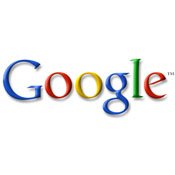There was a time when Google represented that feeling you got watching Jonny Lee Miller and Angelina Jolie do battle with The Man in "Hackers" or Ryan Phillippe go toe-to-toe with Tim Robbins' corporate tech mogul in "Antitrust."
Google symbolized freedom and individuality on the Internet, an alternative to Yahoo and Microsoft. Microsoft had long been the "evil empire," too large to be any good and becoming creatively stagnant. Yahoo, once the cool, quirky kid on the block, was becoming another AOL—cluttered with media content, an annoyingly bright interface and subpar services.
In contrast, Google was clean, crisp and anti-establishment. It gave you really good search results, and its email service was where all the cool kids were heading. It provided lots of storage for free and by invite-only, and it was "beta," after all, which meant you were living on the edge by testing this new system.
Google didn't stop there. It took RSS syndication mainstream with the introduction of Google Reader. It brought word processing and spreadsheets to the web, and eventually it launched its own awesome browser.
Of course, nothing is truly free. You can't run a technology company, pay genius programmers and continue to grow without a revenue stream. Even with private infusions of investor capital, "free" does not translate into financial solvency.
The trade-off for great free products is a few ads. And the great thing about these ads is that Google customizes them to you. It's simple: "Robots" scan your email, documents, and RSS feeds for keywords and patterns. Then, it serves up the ads.
"Wait. What? You mean Google reads my email?"
I remember when that realization really started to sink in for users. People started paying more attention to the ads next to the email they were reading, and the similarities were eerie. It was like Google was The Man, peeking over your shoulder and telling you where to eat dinner while you were reading your boyfriend's email about going out this weekend.
No worries. Google has a motto: "Don't be evil."
No human is reading your information. Computers do it all. And while people monitor these computers, it's not like some evil henchman is sitting in front of a monitor watching the computer scan millions of bytes of data.
Besides, the ads are designed not only to help Google's advertisers but to also help its users—you and me. Google wants to serve us ads that are relevant to us. That's noble, right?
Here's the Google Conundrum: Users are not Google's customers. We are the product. Advertisers are Google's customers, and advertisers are paying for us. So, do you continue to use Google, knowing you are simply a product, or do you cut the cord and seek the freedom Google once touted?
Consider that the only way Google continues to increase their revenue is to offer two things to their customers:
1. More users and
2. Better information about those users.
Gaining more users is why Google has tried so hard to break into the social-media world. It failed with Google Buzz and Google Wave, but it looks like the company finally has a hit with Google Plus. Clearly, building a strong social-media platform means more users.
The other thing social media offers is more information about those users. Google already has loads of content from email, documents, RSS feeds, browser history and even phone numbers and transcribed voicemail with Google Voice. Now, the company is seeking more social avenues: likes and dislikes, connections between users, professional history, alternative email addresses, more phone numbers, high-school addresses, colleges. It's a data goldmine, and Google wants it. It wants you—and me.
In all fairness, Google is a key part of my workflow. It powers two email domains for me. Without Google Reader, my online reading habits would take a huge hit. And while I want to like Bing (gasp!), it's nowhere near as good as Google.
But my faith in Google to not be evil erodes every day. I understand the trade-off for free, even free products as good as what Google offers. But because I do understand that trade-off, it makes me weary of continuing to accept it.
Bonus: If you haven't watched Jonny Lee Miller and Angelina Jolie in "Hackers" (1995) or Ryan Phillippe and Tim Robbins in "Antitrust" (2001), head to Netflix and do so now.



Comments
Use the comment form below to begin a discussion about this content.